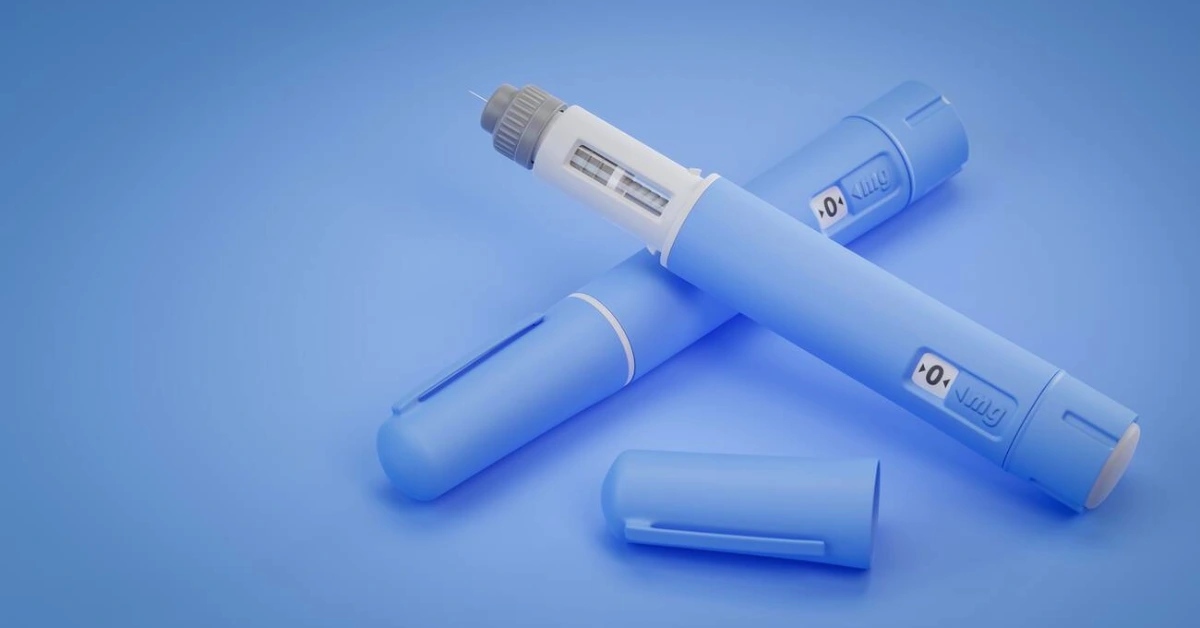Semaglutide, commonly known by its brand name Ozempic, has gained significant attention in the medical community for its effectiveness in managing type 2 diabetes. As more patients turn to semaglutide for treatment, it’s crucial to understand the proper storage requirements to ensure its safety and efficacy. In this article, we’ll dive into the question of whether semaglutide needs to be refrigerated and the importance of following storage guidelines.
Key Takeaways
- Semaglutide (Ozempic) is a medication used to manage type 2 diabetes and promote weight loss.
- Proper storage, including refrigeration, is crucial for maintaining the effectiveness and safety of semaglutide.
- Patients should follow the manufacturer’s guidelines and consult with their healthcare provider for specific storage instructions.
What is Semaglutide?
Semaglutide is a glucagon-like peptide-1 (GLP-1) receptor agonist, a class of medications used to treat type 2 diabetes. It works by mimicking the effects of the hormone GLP-1, which helps regulate blood sugar levels and promotes feelings of fullness. Semaglutide is administered once weekly through subcutaneous injection, making it a convenient option for patients.
In addition to its blood sugar-lowering effects, semaglutide has been shown to promote weight loss, making it an attractive choice for individuals with type 2 diabetes who are also struggling with excess weight. The medication’s unique mechanism of action and potential benefits have contributed to its increasing popularity among healthcare providers and patients alike.
Also Read: Semaglutide Nausea Relief – Strategies For Effective Relief
How Does Semaglutide (Ozempic) Work?
Semaglutide works by activating GLP-1 receptors in the body, which triggers a series of beneficial effects. When semaglutide binds to these receptors, it stimulates the pancreas to produce more insulin, a hormone that helps lower blood sugar levels. Simultaneously, it suppresses the production of glucagon, a hormone that raises blood sugar levels.
In addition to its effects on blood sugar regulation, semaglutide also slows down stomach emptying, which promotes feelings of fullness and reduces appetite. This mechanism contributes to the medication’s weight loss benefits, as patients tend to eat less and feel more satisfied with smaller portions.
Does Semaglutide Need to be Refrigerated?
Yes, semaglutide (Ozempic) needs to be refrigerated to maintain its potency and safety. The manufacturer’s storage guidelines clearly state that semaglutide should be stored in the refrigerator at a temperature between 36°F to 46°F (2°C to 8°C). It’s essential to follow these guidelines to ensure that the medication remains effective and does not degrade over time.
Proper storage is crucial for preserving the integrity of semaglutide and preventing any potential complications or adverse effects. Patients should always refer to the product insert or consult with their healthcare provider for specific storage instructions and guidance.
Why Does Semaglutide Have to Be Refrigerated?
Semaglutide, like many other injectable medications, is sensitive to temperature fluctuations. The active ingredients in semaglutide can degrade or become less effective when exposed to higher temperatures or direct sunlight. Refrigeration helps maintain the stability of the medication and ensures that it retains its potency throughout its shelf life.
Failure to properly refrigerate semaglutide can lead to a reduction in its effectiveness, potentially compromising blood sugar control and weight management goals. In some cases, using improperly stored medication may even result in adverse effects or complications. Therefore, it’s crucial to adhere to the recommended storage guidelines to ensure the safety and efficacy of semaglutide.
How Long Can Semaglutide Stay Out of the Fridge?
While it’s always best to store semaglutide in the refrigerator, there may be situations where patients need to keep the medication outside the fridge for a short period. According to the manufacturer’s guidelines, semaglutide can be kept at room temperature (below 86°F or 30°C) for up to 56 days.
However, it’s important to note that this 56-day period starts from the moment the medication is removed from the refrigerator. Once the 56 days have passed, any unused medication should be discarded, even if it has been returned to the refrigerator. Patients should keep track of when they removed the medication from the fridge and ensure they use it within the allowed timeframe.
Conclusion
Proper storage of semaglutide (Ozempic) is essential for maintaining its effectiveness and safety. Patients should always follow the manufacturer’s guidelines and refrigerate semaglutide between 36°F to 46°F (2°C to 8°C). While the medication can be kept at room temperature for up to 56 days, it’s crucial to keep track of this timeframe and discard any unused medication after that period.
By understanding the importance of refrigeration and adhering to storage guidelines, patients can ensure that they are using semaglutide correctly and maximizing its potential benefits for managing type 2 diabetes and promoting weight loss. If you have any questions or concerns about storing semaglutide, always consult with your healthcare provider for personalized guidance.
Read More: Does Ozempic Cause Muscle And Joint Pain?
FAQs
A: If semaglutide is left out of the refrigerator for a short period (a few hours), it should still be safe to use as long as it hasn’t been exposed to extreme temperatures. However, it’s best to return it to the refrigerator as soon as possible to maintain its potency.
A: No, semaglutide should not be stored in the freezer. Freezing the medication can damage its active ingredients and render it ineffective. Always store semaglutide in the refrigerator within the recommended temperature range of 36°F to 46°F (2°C to 8°C).
A: When traveling with semaglutide, use a reliable, properly sealed medicine cooler with icepacks to maintain the medication’s temperature at 36°F to 46°F (2°C to 8°C). You can also transport the medication within its allowed 56-day room temperature period, but ensure it is protected from extreme temperatures and direct sunlight.
A: If your semaglutide has been stored improperly (e.g., left out of the refrigerator for an extended period or exposed to extreme temperatures), contact your healthcare provider for guidance. They may recommend discarding the medication and obtaining a new supply to ensure safety and effectiveness.

